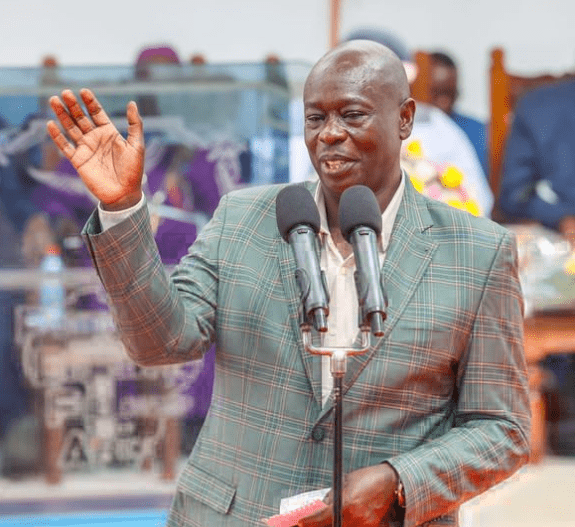Thursday, October 17, 2024 - Nairobi
In an unprecedented political development, the Senate of Kenya has voted to impeach Deputy President Rigathi Gachagua, marking the first time in Kenya's history that a sitting Deputy President has been removed from office. The impeachment motion was passed following an intense debate on Thursday, October 17, 2024, bringing to an end a tumultuous chapter in Gachagua’s tenure.
The move to impeach Gachagua was initiated by the National Assembly on Tuesday, October 8, 2024, where the lawmakers overwhelmingly supported the motion to oust him. The impeachment process was triggered under Article 150 (1)(b) and (2) of the Constitution of Kenya, which allows for the removal of the Deputy President on grounds of gross misconduct or violation of the Constitution.
The grounds for Gachagua’s removal, as detailed in the gazette notice issued by Senate Speaker Amason Jeffah Kingi, were extensive and serious. The accusations against Gachagua included:
-
Gross Violations of the Constitution – Gachagua was found to have violated several key constitutional provisions, including Articles 10, 27, 73, 75, and 129, which outline national values, leadership integrity, and accountability. Specifically, he was accused of undermining Kenya’s democratic principles, equality, and non-discrimination policies.
-
Violation of Judicial Independence – The Deputy President was charged with gross violation of Article 160, which guarantees the independence of Kenya's judiciary. It was alleged that Gachagua had sought to influence judicial decisions, thereby compromising the institution's autonomy.
-
Breach of Oath of Office – In contravention of Articles 3 and 148 of the Constitution, Gachagua was accused of failing to uphold his oath of office and his allegiance to the nation. This was seen as a betrayal of public trust and a threat to the rule of law.
-
Criminal Allegations – The motion raised concerns over Gachagua’s involvement in criminal activities, specifically violations of the National Cohesion and Integration Act. These allegations stem from claims that Gachagua had contributed to ethnic divisions and incitement, thereby threatening national unity.
-
Gross Misconduct – Gachagua was further accused of misconduct that was incompatible with the dignity and stature of the Office of the Deputy President. Of particular concern were his public attacks on the National Security Intelligence Service (NSIS) and its officers. His actions, according to the Senate, undermined national security operations and created rifts within the government.
Following the National Assembly’s approval of the motion, the matter was referred to the Senate, which held a plenary session on October 9, 2024, to investigate the allegations. After reviewing the evidence and conducting hearings, the Senate ultimately voted to remove Gachagua from office on October 17.
Implications of the Impeachment
The impeachment of Deputy President Rigathi Gachagua is expected to have significant political ramifications in Kenya. Gachagua has been a key ally of President William Ruto, and his removal comes at a time of rising political tensions within the ruling coalition. The rift between Gachagua and other senior government officials had become increasingly visible in recent months, culminating in this historic impeachment.
Political analysts predict that Gachagua’s ouster will trigger a power reshuffle within Ruto’s administration, as the President looks to maintain stability while managing the fallout from his deputy’s removal. There is also speculation over potential legal challenges, as Gachagua's legal team is expected to contest the impeachment in court, arguing that the process was politically motivated and lacked sufficient evidence.
What Happens Next?
According to Article 150 (1)(b) of the Constitution, the position of Deputy President will now be declared vacant, and the President will nominate a new Deputy to be approved by the National Assembly. Until then, the duties of the Deputy President may be carried out by other senior officials within the Cabinet, as stipulated by Kenya’s governance framework.
This political shake-up comes at a time when Kenya is grappling with numerous challenges, including economic instability, rising public debt, and ongoing concerns about national security. The leadership vacuum created by Gachagua’s impeachment may add to the uncertainty as the government seeks to navigate through this period of transition.
The impeachment of Deputy President Rigathi Gachagua marks a significant moment in Kenya’s political history, one that will undoubtedly shape the country’s political landscape for years to come. As the nation waits to see what direction the Ruto administration will take, the focus now shifts to finding a replacement for the Deputy President and ensuring political stability in the wake of this dramatic event.
The official gazette notice confirming Gachagua’s impeachment was signed by Senate Speaker Amason Jeffah Kingi on Thursday, October 17, 2024, concluding one of the most controversial chapters in recent Kenyan political history.

